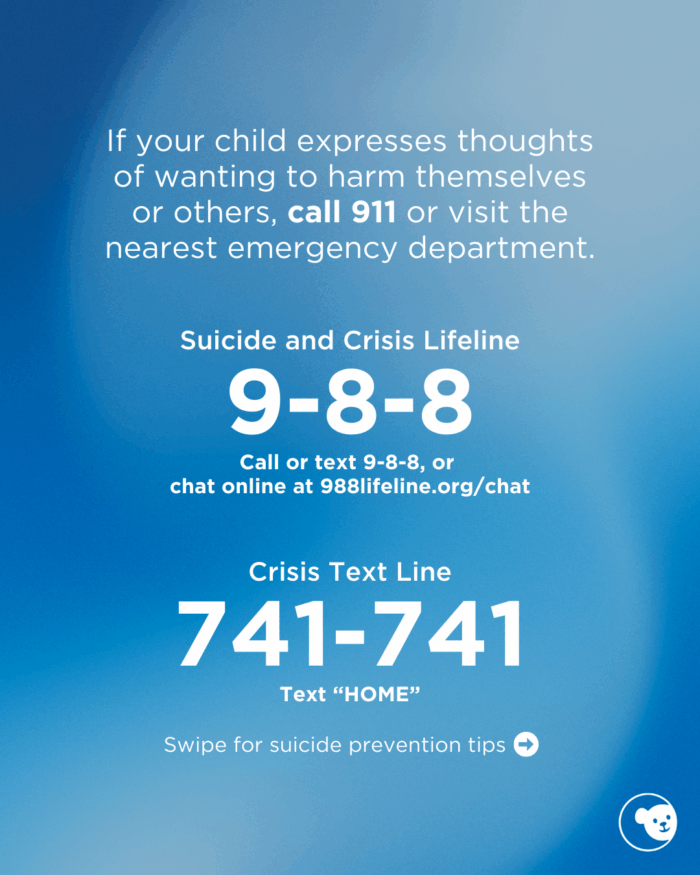If you are the parent of a grieving child, you may also be balancing coping with your own grief. It can be distressing to witness your child grieve, but learning how to hold and honor their grief and how to support and comfort them during this challenging time will help them now and for years to come. Caring for yourself is vital to having the energy and presence to be able to support your child in their grief. In addition to helping your physical and mental health, engaging in healthy self-care practices also helps you model ways your child can take care of themselves throughout their grief/loss journey. In addition to prioritizing your own needs, here are some ideas for how to support your child in coping with grief.
- Be honest. Children who are not accurately informed will often develop their own interpretations of events that can be full of misunderstanding, guilt or shame, and they may begin to grieve in isolation. Honesty lets children know that they can trust you.
- Avoid euphemisms (i.e. “passed away,” “went to sleep,” “lost” a family member). Explain death as the body is not working anymore.
- Find comfort in faith. If you or your child have religious beliefs, be sure the child understands that the body stops working, even if you believe the soul or spirit continues on.
- Check the level of understanding. Encourage questions. Be prepared for children to ask a lot of detailed questions and to ask for frequent clarification.
- Make sure the child know that the illness/death is not their fault.
- Share you own feelings. Give permission to feel sad, angry, etc.
- Reassure the child of your continued presence and support.
- Unless the child adamantly states that they do not want to attend a funeral or memorial service, it is important to give them the opportunity to attend. Prepare your child for what to expect and provide them with choices about how they would like to be involved.
- Maintain routine and consistency. Uphold rules and expectations that were set prior to the loss your child experienced. By helping your child maintain a consistent routine, you are assisting them with finding a sense of “normalcy” despite their loss.
Another way that you can help support your child or loved one during their grief journey is by using Awareness-Reflection-Questions (ARQ), a communication framework, to assist them in feeling validated and better understood in their grief.
- Awareness: Cultivate an awareness of your own experiences with grief and how they shape your expectations. You can also be aware of significant days and transitions for the child (i.e., birthdays, Mother’s Day, the anniversary of the death, etc.)
- Reflection: Reflect what the child says and does – this enables them to better understand what they think and feel (“You’re really sad because it’s your Mom’s birthday, and you miss her”).
- Questions: Decide if it’s helpful/comforting to ask a question that allows the child to share more of their experience: “when you feel sad, where do you feel it in your body?” “What did your Mom love to do on her birthday?” “What do you love to do on your birthday?”
Crisis Resources
If your child expresses thoughts of wanting to harm themselves or others, call 9-1-1 or visit the nearest emergency department.
988 Suicide and Crisis Lifeline:
Call 9-8-8
Text any message to 9-8-8
Chat online at 988lifeline.org/chat
Crisis Text Line:
Text “HOME” to 741741
Save for later
Download, print or share on social media.

Learn more about CHOC’s pediatric mental health services
At CHOC, we specialize in providing a full spectrum of pediatric mental healthcare, including inpatient, intensive outpatient and outpatient program services.





